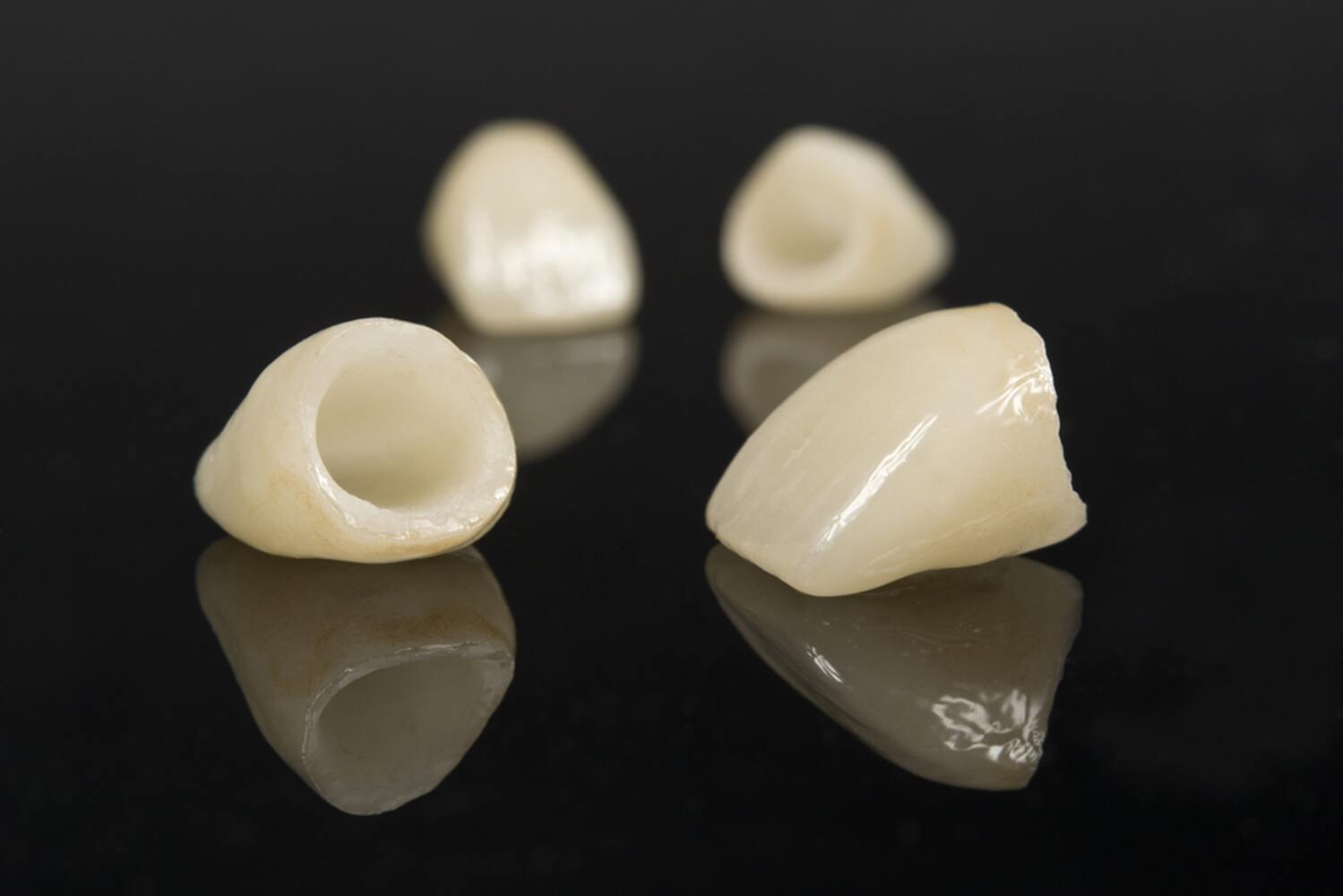If your teeth have been damaged by tooth decay, broken in an accident, misshapen in any way, stained in ways that can’t be bleached away or if you’ve undergone a root canal or are getting crowns, there is one — yes, a single one! — dental restoration that can solve all those issues.
Dentists use dental crowns in Sherwood Park to protect and support damaged teeth, perfect the appearance of flawed teeth, and to prevent infections and support dental crowns to replace missing teeth.
What are dental crowns made of?
Dental crowns near you are made from five different kinds of materials that offer advantages and disadvantages. Which material a dentist near you will recommend for you depends on your particular needs and circumstances.
A wide range of metals — including gold, chromium, nickel and palladium — create the longest-lasting crowns that require the least removal of enamel from your tooth. Metal crowns’ ability to hold up to the highest biting and chewing forces in your mouth makes them an ideal option for molars. Their metallic colour makes them a less appropriate choice for highly visible teeth.
Porcelain-fused-to-metal (PFM) crowns can be tinted to match the colour of other teeth in your mouth, making them an appropriate option for visible teeth in the front of your mouth as well as in the back of your mouth. The disadvantage of PFM crowns is that the metal framework underneath the porcelain layer can appear through the porcelain layer as a dark shadow-like line.
All-resin crowns are typically the least expensive option, but they typically have the shortest lifespan because they wear down more quickly than others. They’re also more easily broken than PFM crowns.
All-ceramic or all-porcelain crowns off all the advantages of PFM crowns — a natural appearance — without the disadvantages of the PFM option — the shadow line. All-ceramic or all-porcelain crowns are excellent options for people allergic to metals but aren’t as strong as PFM crowns due to the absence of the metal framework beneath the porcelain layer.
Pressed ceramic crowns don’t have a metal lawyer like PFM crowns. Instead, that metal layer is replaced with a layer of pressed ceramic, which layer is covered by natural-appearing porcelain. Pressed ceramic crowns last longer than all-porcelain crowns.
How long will crowns last?
The lifespan of crowns provided by a dental clinic in Sherwood Park will vary depending on several factors, especially the materials used to make those crowns, the location of the crowns in your mouth and how well you maintain the health of the teeth under your crown. As a general rule, you can expect dental crowns to last for five to 15 years before needing to be replaced. To prolong the life of your crowns as long as possible, here are four bad and harmful habits to avoid:
● Clenching your jaw and grinding your teeth. (If you have this habit, ask a dentist near you to fit you with a custom mouthguard to protect your teeth.)
● Chewing ice, hard candy or pencils
● Biting your fingernails
● Using your teeth to hold hard objects, twist bottle caps and similar objects and to open packages. (Instead, try using tools, bottle openers and scissors!)
The process of receiving traditional dental crowns in Sherwood Park typically takes a couple of appointments over a few-week period that will include: preparing your teeth by removing a small layer of enamel; taking impressions; crafting your crowns; test-fitting your crowns; and bonding your crowns to your teeth. Many dentists can also provide you with same-day crowns in a single appointment while you wait in the dental clinic using computer-aided design and manufacturing (CAD/CAM) software and technology.
Ask the staff at a dental clinic in Sherwood Park if dental crowns are an appropriate option for helping you achieve your teeth-related goals.
